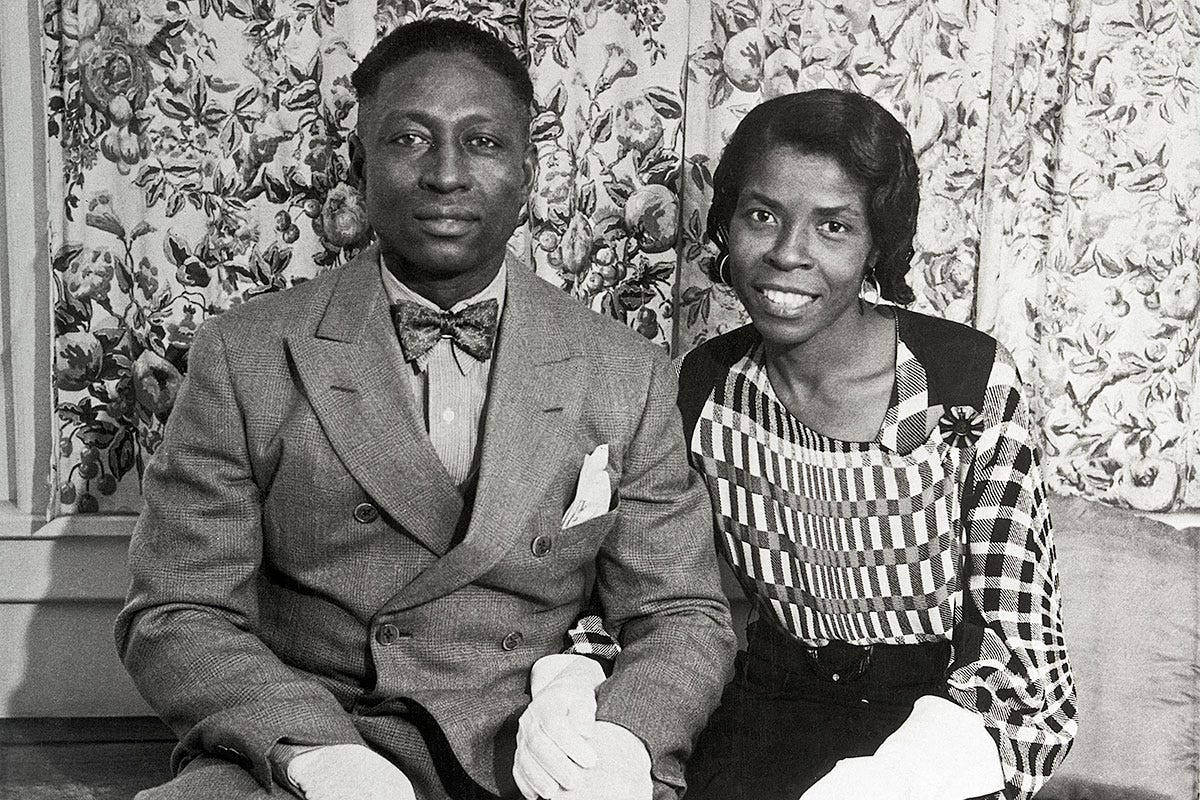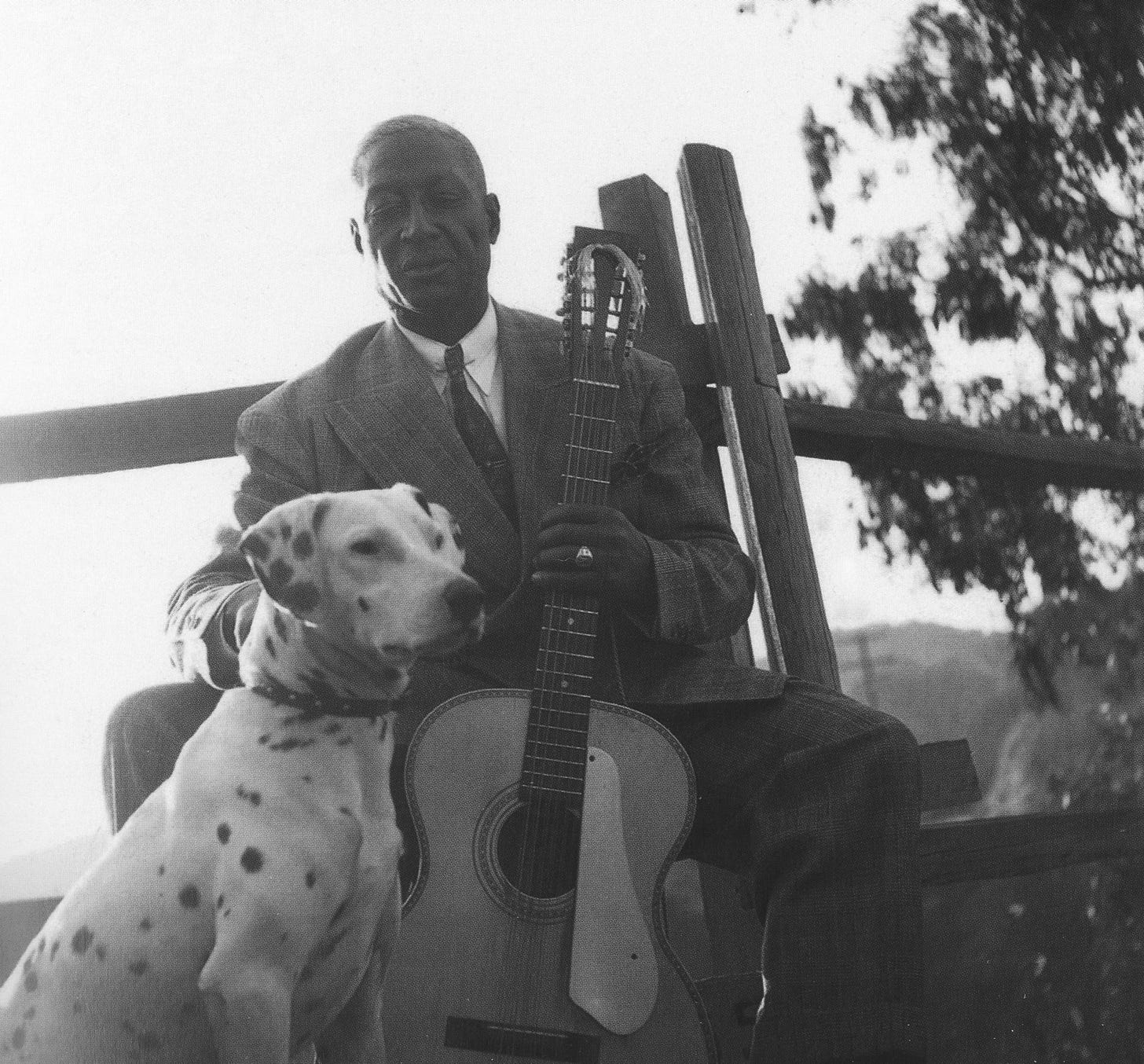Remembering Lead Belly on the 75th anniversary of his passing
Huddie Ledbetter, January 1888 — December 6, 1949.

Lead Belly (Huddie Ledbetter) was an important gateway for me into the world of folk music. When I was a college DJ at the Georgia State University radio station WRAS, I was able to purchase CDs on Rounder Records at a significant discount directly from the label. Through Lead Belly’s repertoire that was featured on those Library of Congress discs, I learned many traditional songs, and the insightful liner notes shed light on his life: the hardships he experienced growing up in Louisiana, the time he spent in prison, and the musical career he had later in life.
The song, “If It Wasn't for Dicky” always stood out to me as a unique performance in his catalog, one that I really loved. In 2015, producer Jeff Place wrote in the Lead Belly box set on Smithsonian Folkways that “this song offers a fascinating insight into Huddie's songwriting process.” I couldn’t agree more. Here is how it came to be…
It was at a party in Greenwich Village where Lead Belly heard Irish singer Sam Kennedy perform a song about a milk cow called “Drimmin Down,” also known as “An droimfhionn donn dilís.” Unable to understand the Gaelic lyrics, Lead Belly asked Kennedy to write down a translation.
From that translation, Lead Belly created a new melody on his 12-string guitar, shaping the core of what would become “If It Wasn't for Dicky.” His version was a departure from the original, but still retained elements of the Irish song's spirit. The Weavers—Pete Seeger and Lee Hays—later adapted it further, entirely reworking the lyrics to create “Kisses Sweeter than Wine,” a romantic folk tune with no mention of a cow, yet still carrying the catchy, infectious melody Lead Belly had crafted.
The transformation from a traditional Irish folk song to an American folk standard illustrates how musical traditions can evolve. Lead Belly’s ability to reinterpret and reshape the material he encountered is a testament to his ingenuity, while the Weavers’ adaptation shows the collaborative nature of folk music. What began as a song about a cow became one of the Weavers’ most popular songs—showcasing how folk music can transcend its original context and take on new meanings while retaining its timeless appeal.

Today, on the 75th anniversary of Lead Belly’s passing, I reflected on this story of a song’s transformation and thought about the recordings that Lead Belly left behind for us all to hear. People often ask me if the two of us are related because we share the same last name. I’ve spoken to several genealogical researchers at various Ledbetter family reunions, and they always tell me they haven’t found a connection. Maybe there isn’t a blood connection but in many ways I can feel a musical one.






My thesis film was going to be on Leadbelly recording his Last Sessions with Martha Promise and Frederick Ramsey , but it never materialized. Pete Seeger gave it his blessing before he passed on however. So much enjoyment reading this. Thanks.
Thanks so much for posting this wonderful remembrance!